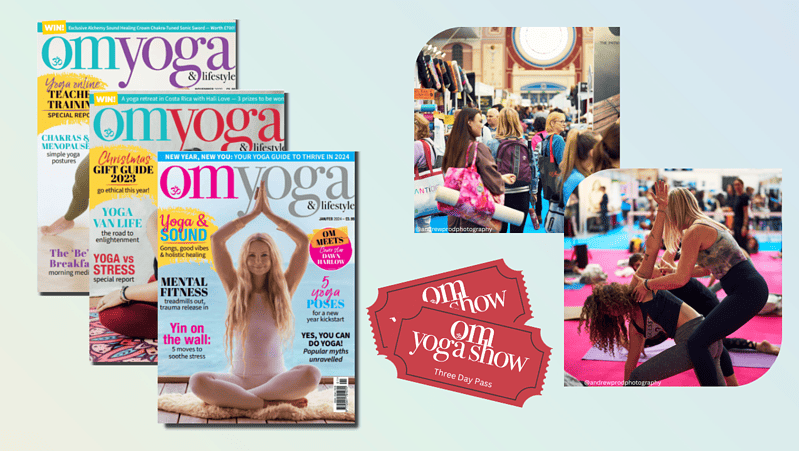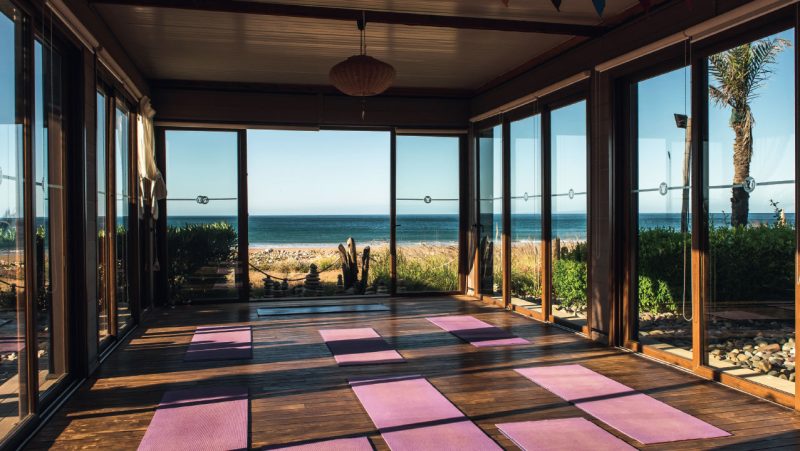
Recalibrate Your Relationship to Resistance
Transform Challenges Through Conscious Breathing - By Imogen North
Reading time: 4 minutes
When we come up against any resistance in life we tend to hold our breath.
In most contexts it is hard to witness us doing this as the mind is more engaged with the resistance than it is with the experience of breathing.
Resistance isn’t a good or a bad thing.
It is just a thing.
We have a tendency to label resistance as unpleasant.
We have a tendency to see resistance as the invisible force that stops us from doing the things we want to do.
But, sometimes, resistance is useful, creating a barrier to protect us from the things we don’t want to do.
Sometimes resistance can be appropriate... if you didn’t have the ability to say ‘no', for example, you would be a puddle on the floor spreading yourself too thin.
But then perhaps you have a tendency to say ‘no' too much?
Or you create boundaries that work for you but push other people away?
For you to journal on….
Where do you find yourself meeting resistance in life?
Do you resist stepping to your yoga mat regularly?
Are you resisting a career change you so desperately want?
A business venture?
A diet that fills you with vitality?
Or in a particular relationship?
How do you feel in your body when you notice resistance?
For me my heart gets hard and I lose my appetite.
For me resistance always shows up in my digestive system.
Not surprising as 70% of the bodies immune system is housed in the gut and the immune system is built precisely for this purpose!
To RESIST bacteria and viruses.
Resistance is a natural phenomenon in all systems…
But why do we resist?
We resist to protect
We resist when things are at stake
We resist when there is the potential of failure.
If you slide too much and too regularly towards resistance you slide away from intimacy.
You distract yourself or avoid a situation.
Even automatic pilot is a form of resistance.
How can you recalibrate your relationship to resistance in such a way that you use it to find freedom in your pressurised system?
How can the breath actually get deeper?
What if we actually train ourselves to breathe more deeply when we meet resistance?
Luckily the subconsciousness mind controls 95% of our body systems.
So we don’t have to think about digesting or breathing or pumping blood around our system on a daily basis.
But it is the conscious breath that can help us to meet the resistance.
It is the conscious breath that can help create the change that often the mind-heart continuum is crying out for.
Luckily, yoga gives us a context in which we get to work with resistance.
Learning to meet resistance on the mat, helps you to meet resistance off the mat.
Ask…
can I unthrottle the breath when I sense resistance?
can the breath get more specific, more local, slower, deeper?
can I stay in the pose, in the challenge and catch the wind of the breath so I hold with grace?
Remind yourself to stay.
This is truly how we meet resistance.
Avoid diverting, distracting, dialling out.
Remind yourself to stay.
My top 3 breath techniques to help you meet resistance:
Directive Breathing : meet the experience
Sit in a pose and direct the breath into the area of the body that is challenging you.
Extended Sama Vritti : sitting past your edge
Find an easy seat and breathe in for 4 counts and out for 4 counts slowly.
Once you feel comfortable with your rhythm add a count to both inhale and exhale so 5 counts in 5 counts out. Get comfortable with that rhythm and then add another count. Repeat until you have met your edge and then continue to breath at that count for a few minutes.
Viloma Pranayama with a Kumbhaka : go against the grain
Viloma means against the natural flow. It is an interrupted breathing technique where you add in a pause. You can interrupt your inhalation or exhalation with a breath pause (kumbhaka). Sit comfortable, and find a natural rhythm to your breath and once you have, hold the breath at the top of the inhale just for a few moments until you feel you need to exhale, and then exhale. Try to work without force or pushing or grapsing with your breath. Keep the quality of your breath gentle.
When you meet resistance treat it like a best friend… it always has something useful to share with you.
The more you listen to resistance the more you can work with it.
The more you can learn from it.
Stay with it, sit with it, breathe into it and then stay a little longer.
Now see what shifts for you.
A new presence.
A new moment.
A new found freedom.





